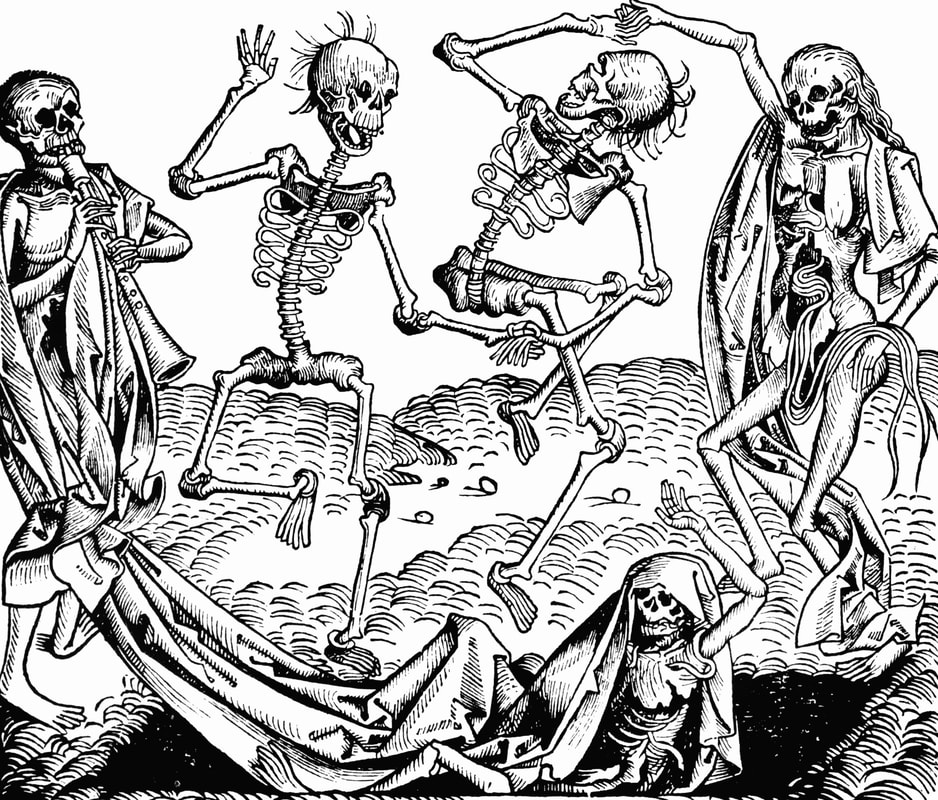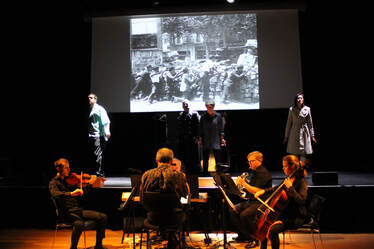|
A project in the autumn and winter lockdowns recently has been to finish another Lorca setting. My operatic version of Así que pasen cinco años I've called In Five Years' Time, which seems a more natural translation than 'When Five Years Have Passed'. Death is a theme of the play and very much in the headlines right now. Lorca and his works fascinate me; this is the fifth project I've based on his works. Several years ago, a friend suggested I take a look at them. He had in mind Blood Wedding and the other tragedies that have established Lorca as one of the world's great dramatists. But I came across some unfinished or fragmentary, experimental works which appealed to me more. Besides which, it felt less predatory to use them since they are rarely performed and I could give them a voice, so to speak. These works are poetic and imaginative and uncover new theatrical territory in a unique way. When he was put in charge of La Barraca, a touring theatre company, in the 1930's, the works that he created for it became more focussed and direct: they had to be, both for audiences' and actors' sakes. The lesser-known works include 'impossible' plays in which, one might say, imagination triumphs over practicalities. Así que pasen cinco años belongs to this category. It follows in the wake of Dali and Bunuel who, in 1929, had collaborated on Le Chien Andalou, the first surrealist movie. Doubtless, the poet wanted to transfer the free-association dreamworld of surrealism to the theatre, something that's very hard, however, to achieve without the use of cinematic techniques. The play exists in Lorca's first draft dated 19 August 1931. A consequent read-through of the play apparently left the participants bewildered and confused but Lorca would surely have revised the work considerably if he had gone on to produce and perform it.
While the opera retains the storyline and most of the characters of the play, it's considerably shorter and the acts are rearranged to create what for my purposes would be a more dramatic structure, distributing the strands among twelve scenes. Among the character list, there are a Dead Cat and a Dead Child. This pair has a touching conversation about what it was like to die. They discuss their brief lives while alive and their fear of the afterlife now they're dead. There's also a Mannequin who's displaying the wedding dress that is pining to be worn but destined to remain unused. I've cast this for two sopranos manipulating a doll or a puppet. They double as the Cat & Child which I suppose will be puppets too. The last of the disembodied characters is a Mask which raises the question: how to perform a persona without a body? She appears to be the remnants of an Italian Countess suffering from multiple delusions. When she describes the Paris Opera has having 'terraces going down to the sea', we know she's confused at best or, most likely, making it up. But so is the author. The young man, the poet - I've called him Federico - addresses the audience: he fears that it's unfashionable to create poetic drama; he wonders why his countrymen celebrate death more than birth and finally, at the end of the opera, he explains to the audience that he was murdered and his body was never found. He's taking part in the drama he's made but he's outside it too. He tolerates three friends who are aspects of himself. Fernando is an older man, a father figure, rather cynical, he's something of a philosopher. He encourages Federico to live for himself. If Fernando represents the past, Juan, whose only thoughts are for his amorous appetites, represents the present. Pedro, on the other hand, is sensitive and morbid, preoccupied with the future. Federico himself is lost in a world of books and dreams; the woman he's supposed to love is only an ideal to him. He puts off the wedding for five years by which time his fiancée, Belisa, has another lover and cancels the engagement - much to the dismay of the Mannequin. Rosita is Federico's repressed assistant (Lorca calls her a typist) and loves him deeply. But he's too blind to notice and in Scene 6 she leaves his employment, upset at being ignored. On her travels she falls under the protection of the Mask; their scene together I've set in Venice, the home of masquerade, accompanied by watery, gondola music (whatever that is). Belisa, who is all about her body, and the Mask, whose glamour exists only in its mind, are played by the same singer; the Mask might represent what Belisa becomes in middle age, lonely and eccentric, a shadow of her former voluptuous self. With difficulty Federico charts a course between his friends who all disappoint him in one way or another and the two women who are disappointed by him. While Belisa pursues other men, Rosita waits patiently. When he finally catches up with her, she makes him wait five years in turn. Life is short, 'love doesn't wait', and this fairy tale doesn't end happily. "You have no eyes to see me naked", she says, referring to his homosexuality. On his journey, lost in the forest, Federico meets three clowns from a circus or (as I prefer) players from the commedia dell'arte (Venice again). In their scenes they confuse the theatrical illusion by introducing a stage-within-a-stage, a second theatre. It's as if they're telling us: it's all a performance. Collectively, they're like a bunch of Shakespearean fools who seem to know a lot more than they're prepared to admit to and who sing sad and funny songs of mysterious things. The play is ultimately about failure. The wedding dress fails to be worn, the three friends fail to break out of their compartmentalised lives, Federico fails in his relationships and the women fail to have children. Only the innocent Child and Cat enjoyed their past lives wandering in the woods and when they cry 'we don't want to be buried' they dance a boogie as if to say: 'always look on the bright side of death'. But if all this sounds grim, the drama still manages to smile, largely by virtue of the language which places the action in a never-never land of nightingales, dawns, mountain-tops, clouds, rivers, oceans, mirrors, breezes, flowers and moons. It's timeless, but the time always seems to be six o'clock. From Renaissance polyphony to music hall burlesque, I've thrown everything at the music to give it the feel of a big musical dream (or nightmare, depending on taste). There's even a (deeply unfashionable) overture; just not at the beginning. Of course, Lorca couldn't know in 1931 that five years later - to the day - he'd be murdered by a Falangist militia at the start of the civil war. I've incorporated this tragedy in the ending of the opera. To the cry of Viva la muerte! (the battle cry of the Fascist Legionarios) the three friends reappear and shoot Federico dead. This happens at the same time as the Dead Cat and Dead Child meet their ultimate, post-mortem fate which is to be carried away by a giant hand, 'the hand of God'. Perhaps the afterlife isn't so bad after all. I'm now looking for a director who can meet these challenges. It would make a great opera film, (special effects anyone?) Currently theatrical life is in abeyance, of course: perhaps things will have improved in five years' time.
0 Comments
Leave a Reply. |
Edward LambertComposer and musician Categories
All
Archives
July 2024
|
|
Scores available by means of a Performance Restricted license from IMSLP
The Music Troupe
|
Contact Us |

 RSS Feed
RSS Feed
